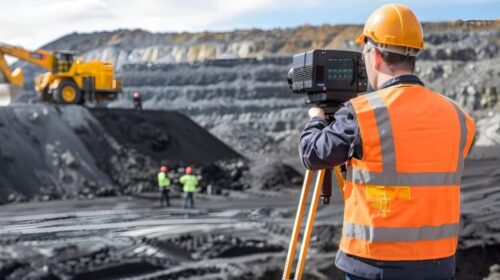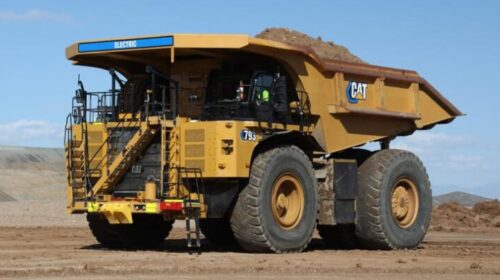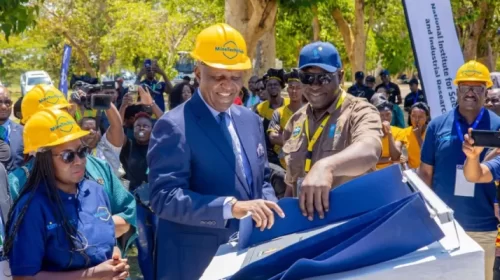Digital transformation has potential to unlock billions in mining value
South Africa boasts a few pockets of excellence in terms of digital transformation in the mining sector. Much more potential and value can still be unlocked, however, and the coronavirus pandemic could well turn out to be the catalyst for triggering large-scale digitalisation across the domestic industry.
In fact, Accenture Africa Industry X MD Eric Croeser argues that the pandemic, and subsequent measures to mitigate its spread, has already prompted industries and businesses, including mining, to adopt digital technologies without an alternative.
The mining industry’s ability to respond quickly superseded that of many other industries, largely because of the fact that health and safety was already a top priority.
Therefore, many companies were able to adapt quickly, using technology to assist in, for example, contact tracing and site access.
Accenture’s subsequent research of the industry highlights that health and safety has indeed been a key driver for the adoption of digitalisation, even prior to the pandemic.
It also points to some pockets of excellence outside of the health and safety area, with one global diversified miner operating in the country among the first globally to trial remotely operated drills.
South African miners have also emerged as “market leaders” in deploying intelligent collision-avoidance systems.
Legislative requirements put pressure on South African mining industry role-players to fast-track this before their counterparts in other countries.
From a macro perspective, he notes that the Presidential Commission on the Fourth Industrial Revolution (4IR), set up by the Presidency to drive 4IR initiatives on a broad scale, has also been supportive of the trend to adopt digitalisation in the mining industry.
Likewise, work done by Minerals Council South Africa to drive a digital strategy, as well as the partnerships with education and research institutes to drive a specific mining style of technology adoption, has proved pivotal in laying the foundation for digitalisation in the industry.
That said, the level of digital transformation in the country is nowhere close to where it could be, with Accenture’s own research showing that there is about R153-billion worth of value to be unlocked in this arena by 2026.
The pace of adoption across mining has been moderated by the sector’s general aversion to risk, with digital technology implementation requiring something of a ‘high-risk, high-reward’ attitude.
Big Opportunities
The biggest potential to unlock value through digitalisation of the mining industry lies in autonomous operations, but Croeser is quick to stress that this does not necessarily imply automating equipment. Rather, the research suggests that much of the value release relies on automating processes.
In addition, applying technology around the digitally connected worker, such as providing over-the-shoulder coaching for employees and operators, can yield results that are likely to be fast-tracked after the pandemic.
This will result in cost savings, consequently making this technology more amenable to being mainstreamed in the industry. Using such technology also removes people from the risk of physical danger associated with being on site.
Further, integrated data platforms are the most underinvested aspect currently, but will provide the biggest return per rand invested.
Croeser emphasises that this will obviously need to be underpinned by appropriate and adequate security to ensure that mines’ operational data remain protected.
There are also opportunities in deriving advanced analytics and insights from the data that is gathered.
Beyond the mine fence, Accenture’s research also indicates that there is R60-billion worth of value to be unlocked, and to capitalise on this would require skills development in the mining industry.
He explains that, if mines implement more digital technologies and digital services at their operations, then skill-set requirements will change accordingly. This, in turn, will lead to opportunities to develop these skill sets in communities, with these then being transferable to applications beyond the mining industry when mines close.
Responsible Adoption
Croeser says that there needs to be a change in the narrative on digitalisation: technology is not here to replace people, but rather to make the lives of workers easier.
To do this in the mining industry, therefore, requires that technology is made user-centric.
In pursuing digitalisation, technology must, therefore, be applied responsibly, particularly when health and safety considerations are the biggest drivers locally for digitalisation adoption.
Further, amid South Africa’s grappling with a high unemployment rate, discussions regarding digitalisation, in any industry, tend to include concerns about job losses.
He says there will always be concerns when digitalisation is interchanged with automation that jobs will be impacted on, which reaffirms the need for the responsible application of technology.
Therefore, a key driver of automation in the industry should be that for every job affected by automation, five additional peripheral positions can be created.
“As soon as new technology comes into an operation, additional services and maintenance, besides others, are created. It is our responsibility, as the mining industry, to upskill the people who will be affected by this and then to increase the peripherals around it,” Croeser asserts.
In so doing, the “misconception” that automation will invariably have negative effects on operators can be addressed.
The fact that the automation of processes, rather than the automation of equipment, offers the quickest and highest returns, Accenture argues, points to the nature of operator jobs changing rather than the shedding of those jobs.
Upskilling people encompasses not only mining, as the 4IR requires a fundamentally different set of skills, which should be implemented across all education levels.
From a mining perspective, Croeser adds that higher education institutions should incorporate, and are incorporating, data engineering styles of skills sets – such as advanced analytics and statistical process control – as part of university degrees.
Mining companies are also upskilling and right-skilling, having realised that the mineworker of the future requires a different set of 4IR skills, and that they will have to compete with technology companies for these types of skills.
Therefore, a number of local mining companies are leading the charge by running academies within their organisations to upskill a broad section of their employees to have these skill sets as part of their competences, notes
20 total views , 1 views today





